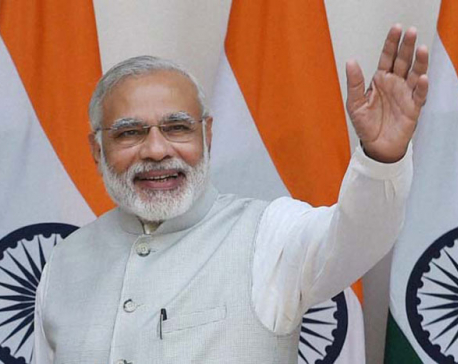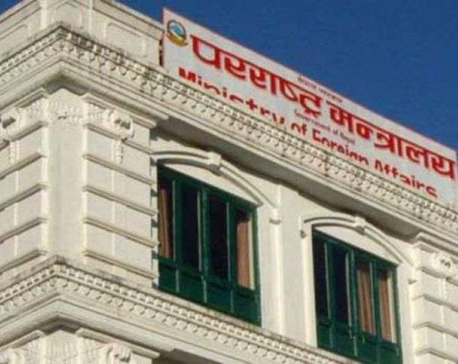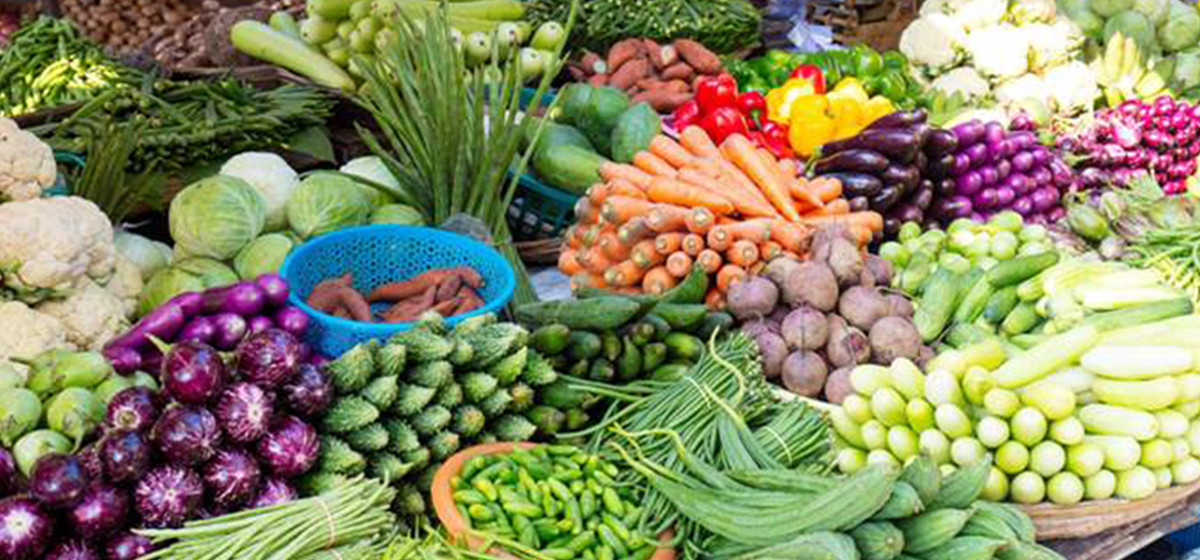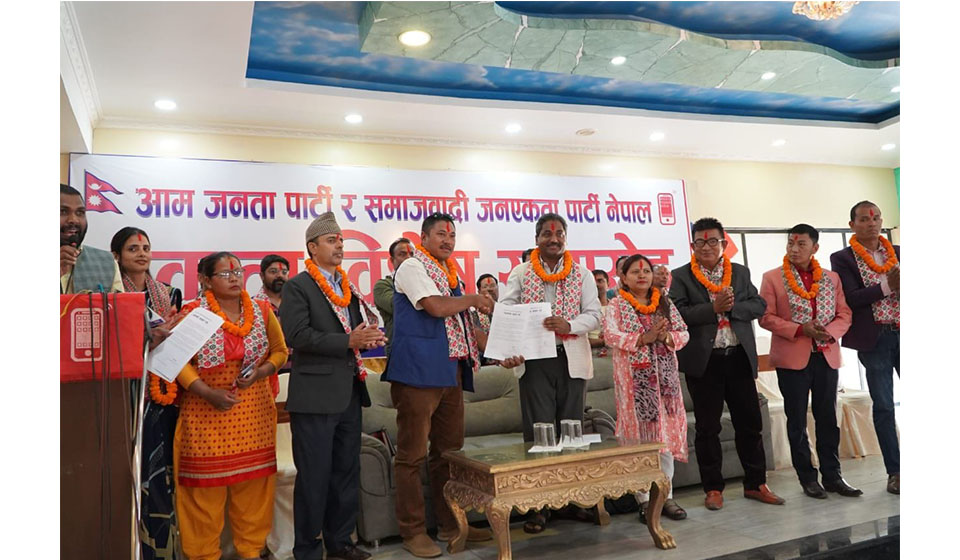
OR
Do Nepali visa applicants need to worry about India-Canada diplomatic tension?
Published On: September 29, 2023 09:30 AM NPT By: Sajira Shrestha
_20230929055325.jpg)
KATHMANDU, Sept 29: On September 18, Canadian Prime Minister Justin Trudeau made allegations against the Indian government, implicating its hand in the fatal shooting of a Canadian Sikh leader that occurred on Canadian soil.
Prime Minister Trudeau asserted that Canada's national security apparatus had credible reasons to suspect that "individuals affiliated with the Indian government" were responsible for the murder of the Canadian citizen, who also served as the president of Surrey's Guru Nanak Sikh Gurdwara.
The victim, Canadian citizen Hardeep Singh Nijjar, lost his life outside a Sikh temple in Surrey, B.C. on June 18. Trudeau addressed the House of Commons on September 18, condemning any foreign government's involvement in the killing of a Canadian citizen within Canada's borders as a grave violation of sovereignty and a departure from the principles of free, open, and democratic societies.
Subsequently, the Indian government refuted these allegations. In the fast turn of events, India's Ministry of External Affairs on September 18 issued a statement, categorically rejecting Prime Minister Trudeau's accusations, denouncing them as "baseless" and driven by ulterior motives.
But this did not calm Canada. Canadian Foreign Affairs Minister Mélanie Joly announced her government's decision to expel a senior Indian diplomat from Ottawa. Specifically, Pavan Kumar Rai, who headed India's foreign intelligence agency, the Research and Analysis Wing (RAW), in Canada, was given notice to leave the country.
India reciprocated by expelling the Canadian High Commissioner, granting him five days to depart. India also ordered the Canadian High Commission to reduce the number of diplomatic personnel based in New Delhi.
This escalating situation appears to be straining the relationship between Canada and India, which historically centered on trade and the substantial Indian diaspora in Canada. Recent years have witnessed a gradual deterioration in this relationship, largely stemming from India's accusations that Canada has supported a Sikh separatist movement, countered by Canada's claims of interference in its internal political affairs by Indian officials. Canada is home to the world’s largest Sikh population outside India, numbering nearly 770,000 people, or 2.1% of the country’s population.
While the diplomatic tension between India and Canada continues, there are concerns in Nepal if this bitter diplomatic row would affect Nepali nationals applying for Canadian visas, as documents related to visa applications and passports are typically processed by the Canadian High Commission in New Delhi, India. Prospective students and their guardians are understandably anxious about the potential impact of the growing tensions between India and Canada on their visa applications.
However, Rajesh Adhikari, the managing director of the Canadian Study Center in Kathmandu, stated that the ongoing dispute between the two countries has not had a notable impact on the visa application process for Nepali individuals. "As of now, we have not observed any issues. The volume of visa applications and the rate of visa approvals remain consistent with historical trends. It's natural for students and their guardians to have concerns given the current situation," he said.
Adhikari also acknowledged that it is uncertain how the situation may evolve in the future between the two countries. "To date, there have been no significant alterations in visa processing and application procedures. However, in the event of an escalation in the dispute between the two nations, Canada might consider relocating its consulate operations from India to alternative locations, such as Singapore," he added.
While both countries have expelled each other's top diplomats, it is evident that the diplomatic tensions between the two countries does not seem to subside anytime soon. The fact that Canada decided to suspend trade negotiations with India shows that the relations between the two countries are not coming back to normalcy anytime soon.
Additionally, the US Ambassador to Canada revealed that intelligence shared within the "Five Eyes" network contributed to Canada's public assertion regarding the potential involvement of the Indian government in the assassination of a Sikh separatist activist on Canadian soil. "There was shared intelligence among Five Eyes partners that played a role in Canada's statements," the envoy David Cohen confirmed in an interview, referring to the intelligence-sharing alliance consisting of the United States, United Kingdom, Australia, Canada, and New Zealand.
Despite all these developments, experts in Nepal are cautiously optimistic that things are less likely to worsen further as both the countries understand the importance of each other. Associate Professor at Kathmandu University School of Arts, Dr Uddhab Pyakurel, a foreign policy watcher, believes that Nepal is unlikely to be affected by the India-Canada dispute as Nepal’s relations with Canada is independent of what type of relations New Delhi wants to maintain with Ottawa.
"Canada is considered a developed nation, and India is seen as an emerging nation. Nepal falls into a different category, and it's important for us not to intervene in their bilateral issue. We have experienced India's imposition of a blockade on us, so we should exercise caution and avoid interference," remarked Dr Pyakurel. "The primary lesson for us here is to observe how these two countries resolve their dispute."
You May Like This

Nepal good friend of India: Deuba, India ready to support Nepal's development: Modi
NEW DELHI, Aug 24: Prime Minister Sher Bahadur Deuba, who is currently on a five-day state visit of India, said... Read More...

‘Diplomatic note’ sent to India seeking action against dissemination of blasphemous material about Nepal, its political leadership
KATHMANDU, July 13: While taking a strong exception to the blasphemous materials about Nepal and Nepal’s political leadership, Nepal has sent... Read More...

May 12: 6 things to know by 6 PM today
Your daily dose of missed important news of the day. ... Read More...


Just In
- Sunkoshi-Marin Diversion Project’s tunnel construction nears completion, breakthrough scheduled for May 8
- Govt tightens security arrangement for Third Investment Summit 2024
- Pesticide residue found in vegetables in Nepalgunj
- Aam Janata Party and Samajwadi Jana Ekata Party merge
- 1,600 participants confirmed for Nepal Investment Summit
- Ilam-2 by-elections held peacefully, vote count likely to start tonight
- NEA schedules five-day power cut across Kathmandu Valley for underground cable installation
- Hundreds of passengers including foreign tourists in distress as poor visibility halts flights to and from PRIA







-1200x560-wm_20240427144118.jpg)






Leave A Comment